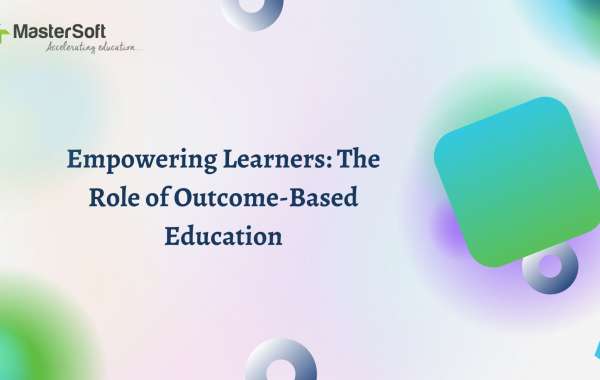In today's rapidly changing educational landscape, Outcome-Based Education (OBE) is emerging as a powerful tool for empowering learners and transforming the way we approach teaching and learning. By shifting the focus from content coverage to the achievement of specific learning outcomes, OBE provides a framework that is purposeful, student-centered, and results-oriented. In this blog post, we will explore the role of Outcome-Based Education in empowering learners, examining its principles, benefits, and implications for both educators and students.
Understanding Outcome-Based Education
Outcome-Based Education is a pedagogical philosophy that prioritizes clearly defined learning outcomes over the mere delivery of content. At its core, OBE is about setting clear expectations for what students should know and be able to do by the end of a course or program. By defining specific learning outcomes, educators provide students with a roadmap for success, guiding them on their learning journey and empowering them to take ownership of their education.
The Essence of Empowerment
At the heart of Outcome-Based Education lies the essence of empowerment. By focusing on the mastery of essential skills, competencies, and knowledge, OBE empowers learners to take an active role in their education. Instead of being passive recipients of information, students are encouraged to engage with the material, set goals, and track their progress towards mastery. This sense of ownership and agency fosters a deeper level of engagement and motivation, driving students to achieve their full potential.
The Shift from Inputs to Outputs
One of the key principles of Outcome-Based Education is the shift from inputs to outputs. Instead of focusing solely on what is taught (inputs), OBE emphasizes what students are expected to learn and be able to do (outputs). By defining clear learning outcomes, educators provide students with a roadmap for success, guiding them on their learning journey and empowering them to take ownership of their education.
The Role of Assessment in Outcome-Based Education
Assessment plays a critical role in Outcome-Based Education. Instead of relying solely on traditional measures such as exams and quizzes, OBE emphasizes the use of authentic assessment methods that closely align with the intended learning outcomes. This can include performance tasks, projects, portfolios, and real-world simulations.
Authentic assessment allows educators to gauge not only what students know but also how well they can apply their knowledge in real-world contexts. By providing students with opportunities to demonstrate their understanding through meaningful tasks and projects, educators can gain a more accurate picture of student learning and provide targeted feedback for improvement.
Benefits of Outcome-Based Education
Outcome-Based Education offers a range of benefits for both educators and learners. For educators, OBE provides a framework for designing and delivering instruction that is focused, purposeful, and student-centered. By clearly defining learning outcomes and aligning instructional activities and assessments with those outcomes, educators can ensure that their teaching is both effective and relevant.
For learners, OBE offers a more engaging and meaningful learning experience. By focusing on the mastery of essential skills and competencies, rather than the memorization of facts and figures, OBE prepares students for success in the real world. By providing students with opportunities to apply their knowledge in authentic contexts, OBE fosters critical thinking, problem-solving, and creativity.
The Empowering Role of Educators
Educators play a crucial role in empowering learners through Outcome-Based Education. By setting clear learning outcomes, providing meaningful feedback, and creating a supportive learning environment, educators can empower students to take an active role in their education and achieve their full potential.
Overcoming Challenges
While Outcome-Based Education offers many benefits, it is not without its challenges. Implementing OBE requires a significant shift in mindset and pedagogical practices, which can be daunting for educators who are accustomed to more traditional methods. Additionally, designing meaningful learning outcomes and aligning them with assessments can be a complex and time-consuming process.
Furthermore, there is a risk of reducing education to a checklist of skills and competencies, overlooking the broader goals of personal and intellectual development. It is essential to strike a balance between accountability and flexibility, ensuring that Outcome-Based approaches do not become overly prescriptive or standardized.
Conclusion
In conclusion, Outcome-Based Education represents a fundamental shift in the way we approach teaching and learning. By prioritizing clearly defined learning outcomes, authentic assessment, and student engagement, OBE ensures that education is purposeful, relevant, and student-centered. As we continue to navigate the complexities of the 21st century, Outcome-Based Education offers a promising path forward, one that empowers learners to achieve their full potential and succeed in an ever-changing world. Through OBE, we can foster a generation of empowered, self-directed learners ready to tackle the challenges of the future.




